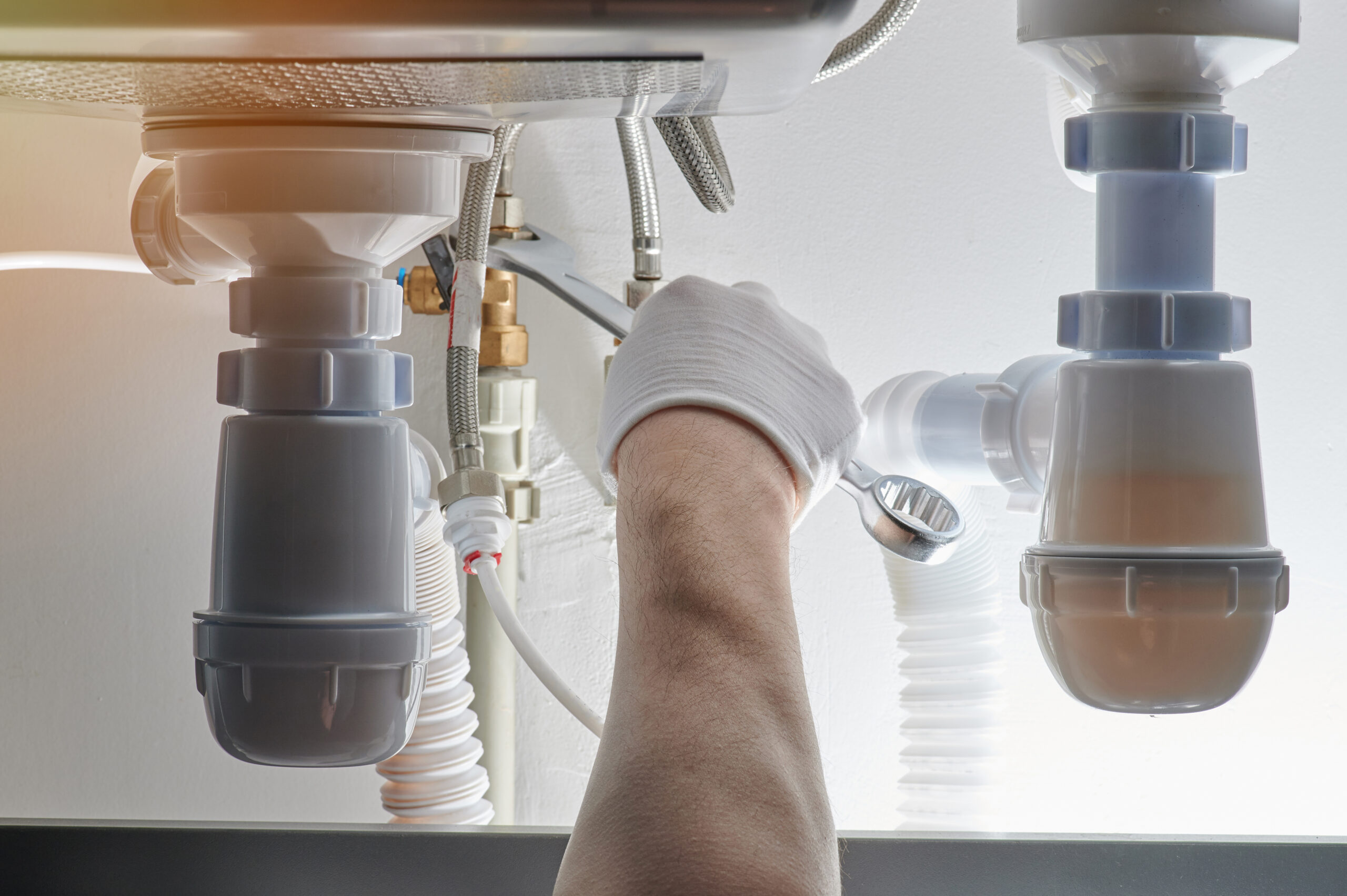
Installing drain system in kitchen close up view
Although there are certain types of plumbing repairs that you should leave to the professionals, there are plenty of plumbing tasks that you can take on yourself. Before you attempt any plumbing repair, though, it’s important to know some basic tips that will help ensure your success. Rather than figuring out what you should and shouldn’t do from trial and error, here are a few insights that should help save you some time and money.
Know Where Your Cut-Offs Are Located
Before you begin any plumbing repair, it’s important to locate the cut-off valves for the particular fixture you’re repairing. Some fixtures, such as sinks and toilets, have local valves so that you only have to turn off the water for that particular fixture. You should also know where the cut-off valve for your entire house is located so that you can stop the water flow in the event of an emergency.
Don’t Forget the O-Rings
When you’re fixing certain plumbing fixtures, such as faucets in sinks or tubs, one of the most important parts that you’ll need is one of the smallest and most simple. O-rings help stop water from leaking through small gaps in your plumbing fixtures, making them very important for preventing damage to the areas around the fixtures. O-rings often become cracked, which can cause them to leak. Therefore, if you’re struggling with a mysterious pool of water in your bathroom or kitchen, try installing new o-rings like those at Rothkopf as a first step.
Avoid Chemical Drain Cleaners
When performing plumbing repairs by yourself, ease-of-use is the name of the game. If you want to clear your drains, there’s almost nothing easier than using a chemical drain cleaner. Unfortunately, using chemical drain cleaners is one of the worst things that you can do. These harsh chemicals can damage your pipes and cause chemical burns on your skin. Rather than using this method to clean your drains, you should try a plumber’s snake to break up and remove clogs.
Find the Unusual
Plumbing problems are often easy to identify because something in the plumbing system will be noticeably amiss. If you notice unusual sounds, smells, or sights in or around your home’s plumbing system, there’s a good chance you need to think about repairs. That’s why it’s always important to be on the lookout for things that seem “off” so that you don’t overlook problems until there’s major damage.
Know When to Quit
Every good do-it-yourself plumber has one thing in common: they know when to quit. If you get into a project that’s more than you can handle, it’s always a good idea to call a professional plumber. Otherwise, you could end up with massive water damage that could have been avoided. If you’re willing to swallow your pride, then you’re ready to tackle almost any plumbing repair.


